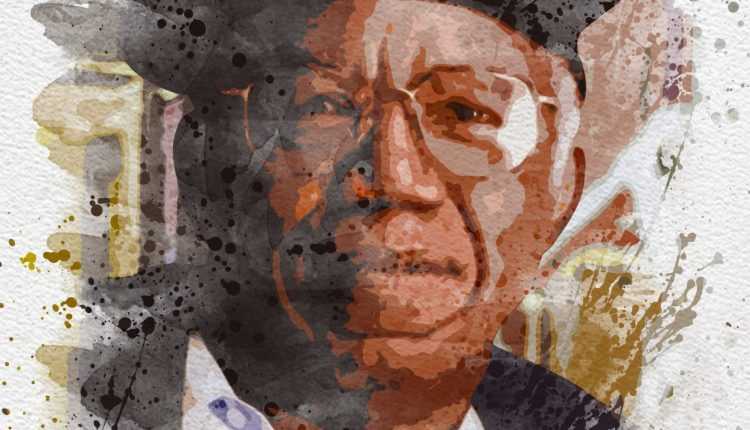Chinua Achebe: The Writer Who Pulled Down Prison Walls
November 16 is a landmark date in Anambra state, the day one of Africa’s literary figures of the 20th century, Chinua Achebe, was born in Ogidi, Anambra state, Universally known for his archetypal novel titled Things Fall Apart.
The globally famed and read writer is now celebrated annually every November 16 by The Society of Young Nigeria(n) Writers (SYNW), for his leviathan achievements, heroic deeds and contribution towards restoring the glory of the African continent.
According the coordinator of SYNW, Comr. Izunna Okafor, this year’s literary festival and memorial lecture will feature an essay competition, poetry and drama presentation and will take place at the Anambra State Library, also known as Prof. Kenneth Dike Central E-Library, beside Arroma Junction, Awka, the Anambra state capital, South-Eastern Nigeria.
Okafor wouldn’t disclose the essay topic, saying that “no school has prior information on the essay topic. It’s there, at the event, that the title will be revealed.” He, however, added, “I can give the theme of the year’s annual event which is Our Heritage in a New Normer.
That is the theme of the event but the students can read about Achebe. They should just go ahead and read about Achebe.
“The only thing we should focus on that day is Achebe. “So, let them just study him, his life,” he said.
CHINUA ACHEBE
It will be recalled that that icon of South Africa’s fight against apartheid, the prisoner to president freedom fighter, Nelson Mandela, had narrated his experience with Chinua Achebe’s Things Fall Apart, as a prisoner during his 27-year-long incarceration in his Robben Island prison.
He had said that the book (which has, so far, been translated into over 50 languages and sold more than 10 million copies) was reliable company and that, through the book, Achebe was “The writer in whose company the prison walls fell down.”
Prof. Ifeyinwa J. Ogbazi of the English, Literary & Gender Studies at Nnamdi Azikiwe University, Awka, Referentiallly touring round Achebe’s books in the 2018 festival, Prof. Ogbazi, a lecturer in Nnamdi Azikiwe University, Awka, and a connoisseur in the literary field, described Achebe as “a nationalist who did not only fight colonialism and racism in Africa with his pen as a writer, but also projected the beauty of Africa through his books and left great legacies; hence worth celebrating, as his luminous life and gargantuan vestiges can never be forgotten in a hurry.”
The Nigerian novelist, poet, professor, master storyteller, critic, and a freedom fighter lived between November 16, 1930 March 21, 2013. Raised in Ogidi, Anambra state, Achebe excelled at school and won a scholarship to study medicine.
He changed to English Literature at University College (now University of) Ibadan. In 1936, one of his teachers at St. Phillip’s Central School, Ogidi described him as the student with the best handwriting in class, and the best reading skills.
At the age of 12, Achebe enrolled as a student at Central School, Nekede where his elder brother, John taught. In 1944, he sat for entrance examinations and was accepted at both the prestigious Dennis Memorial Grammar School in Onitsha and the Government College, Umuahia.
After graduating from the University College, Ibadan, Achebe went home to his village and visited a secondary school within his district called the Merchants of Light School in Oba, near Ogidi where he was given a job as an English teacher. He later worked for the Nigerian Broadcasting Service (NBS).
He was to gain worldwide attention for his novel Things Fall Apart, published in 1958. His style relies on the Igbo oral tradition and combines straightforward narration with representations of folk stories, proverbs and oratory.
As the father of African Literature, Achebe plays the special role of suggesting the basic values of the society, reconciling Africans with their past and their present culture in times of crisis. Achebe popularised the African novel and became a literary institution in his life time, especially to the younger generation.
His epochal “Things Fall Apart” was a response to Joyce Cary’s 1939, 198-page Mister Johnson which portrayed the average Africans as barbaric, cultureless and and object of servitude. Achebe himself saw Cary’s portrayal of the African in the book as superficial hence his resort to Things Fall Apart. Joseph Conrad’s Heart of Darkness that presents Africans as savages and harped on savagery, barbarism, exploitation, cruelty and the like also patronised and demonized the continent, to Achebe’s ire.
CHINUA ACHEBE THINGS FALL APART
In an article on The Role of the Writer in a New Nation, Achebe sought to correct the prejudices which generation of detractors created about the black race, then more popularly known as negro. He gave priority to the fundamental theme that African people did not hear of culture for the first time from the Europeans; that their societies were not mindless but frequently had philosophy of great depth and value and beauty; that they had poetry and, above all, dignity. With Things Fall Apart, he established that Africa had marriage systems, sports, farming, religion, mathematics, philosophy and means of dispensing justice long before the white man came around.
Achebe, in another article titled Where Angels Fear to Tread, called on critics to apply to African writers the same stringent standard of literary criticism with which they judged other writers. In yet another article, The Novelist as a Teacher, he posited that African writers should help Africans believe in themselves and put away the complexes of the years of denigration and self abasement.
Achebe’s A Man of the People portrays the period of disillusionment, disenchantment, hopelessness and betrayal of one among Africa’s political elite that took over from the colonial masters.
The clash of culture in Achebe’s Arrow of God leads to the destruction of the god and his priest as well as the disintegration of the community.
Rising in defence of African Literature, Achebe explained that African writers should aim to use English in a way that brought out their message best without altering the language to the extent that its value was lost.
In order to extricate Africans from the cultural slumber and dogmatic unreflective passive existence to active participation in shaping their own and asserting the truth of their being and world, Achebe began to protest in his writings so as to bring back African identity. It is no doubt that Chinua Achebe has shown in his archetypal novel, Things Fall Apart that Africans were producers of culture and not its consumers.
He was able to establish that African culture was not inferior as the westerners were wont to believe. Achebe, who also wrote many other books, is now an institution and most African writers that write in his style are known today as sons of Achebe.
As a literary pundit, Chinua Achebe, has demonstrated that novels are written as a phenomenon of cultural vindication of Africans from historical skepticism which relegated them to the back seat of cultural train.












